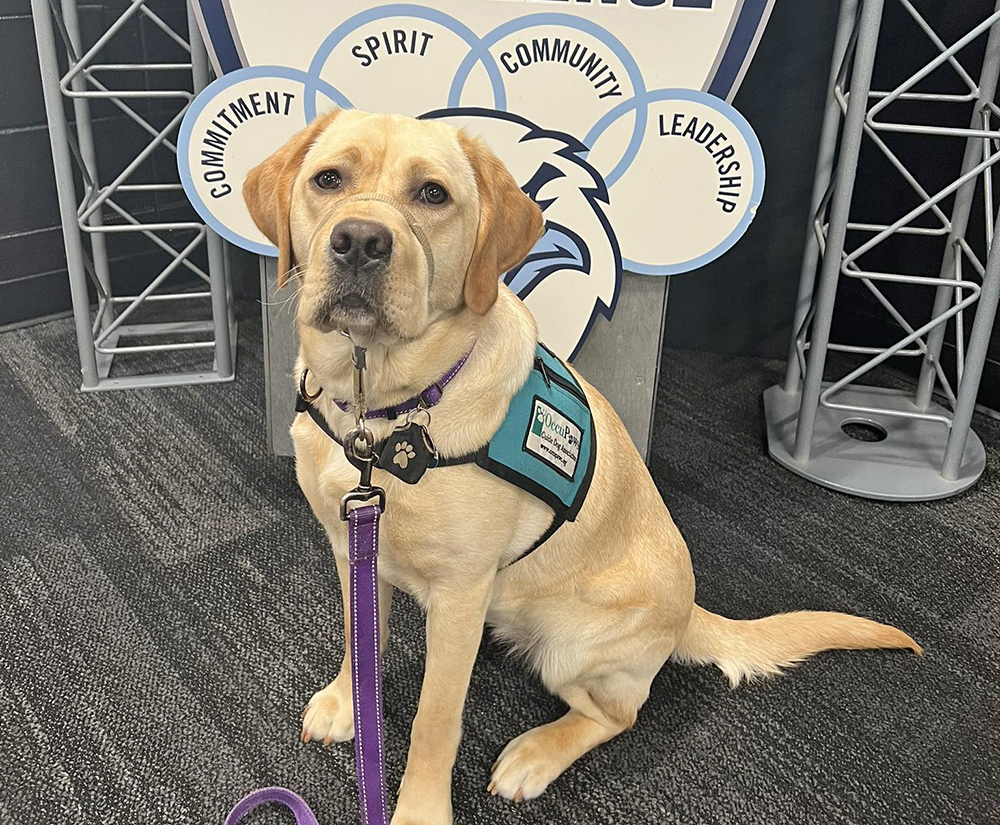Customized In-Home Guide Dog Training for the Visually Impaired
At OccuPaws Guide Dog Association, we take a unique approach to guide dog training and placement. Unlike traditional organizations, we offer fully customized in-home training programs designed to meet the individual needs of our visually impaired clients. This personalized process ensures that every guide dog placement is tailored for success in real-world environments.
What Makes our Program Different:
- In-Home Training: Personalized 12–14 day sessions in clients’ homes, focusing on familiar routes and daily activities.
- Small, Personalized Program: Limited to 6–8 placements annually, ensuring individualized attention for each team.
- Comprehensive Education: Training covers guide dog care, mobility skills, public access, and etiquette.
- Real-World Experience: Exposure to various environments, including nearby cities and towns, for versatile training.
Lives Changed (Infinite)
Puppies Raised
Guide Dogs Placed
Transforming Lives Since
2005
The Perfect Experience
A Unique Guide Dog Training Experience with OccuPaws
OccuPaws provides a distinctive and personalized training experience for our clients. Unlike traditional programs, all placement training is conducted in the comfort of the client’s home. This approach ensures that blind individuals can remain with their families, maintain their jobs, and continue their daily lives while learning to use one of the most remarkable mobility tools available—a guide dog. In some cases, family members may also participate in the training, fostering a supportive environment for the guide dog’s integration into the household.
— Our Approach
From Puppy to Guide Dog
OccuPaws’ puppies undergo a rigorous process to become guide dogs. After extensive training, passing comprehensive health screenings and graduating from the Community Puppy Program, they enter Formal Harness Training—a three to four-month intensive training phase. During this period, aspiring guide dogs live with our Guide Dog Mobility Instructors and receive one-on-one training daily.
In Formal Harness Training, dogs master essential guide dog mechanics, such as avoiding obstacles, identifying elevation changes, and respecting traffic. Our innovative “targeting” method teaches dogs to locate objects like escalators, elevators, stairs, empty chairs, counters, and more. These skills are vital for enhancing the independence and mobility of their future handlers.
The Perfect Match
Matching the right guide dog with the right client is both an art and a science. Our application process and mobility screenings allow us to consider lifestyle, activity level, walking speed, personality, and more when creating a working team. Once paired, the placement training begins.
OccuPaws’ “in-community” placement program typically lasts two to three weeks, depending on the client’s individual needs, abilities, and experience. During this time, clients learn to navigate various environments—rural, residential, urban, and metropolitan—while mastering guide dog mechanics, public transportation use, problem-solving, and service dog access and etiquette.
Lifelong support
OccuPaws is committed to supporting our guide dog teams throughout their working lives. We offer ongoing technical support and follow-up services whenever needed, ensuring each team’s long-term success. Our small size allows us to provide unmatched, personalized care to every client.
If you’re interested in applying for an OccuPaws Guide Dog, please complete the Student Application below. For questions about the Formal Harness Training program, contact us—we’re happy to assist!
We serve clients who:
- Possess the physical, mental, and emotional capability required to train with a guide dog.
- Clients must have a medically substantiated visual impairment, at minimum. Their loss of vision must be sufficient to not interfere with the safety and effectiveness of a guide dog, and their hearing must enable them to make decisions in the best interest of the team.
- Are legally blind – the SSA defines legal blindness (also called statutory blindness) as best corrected visual acuity of 20/200 or worse in the better eye; or a visual field limitation such that the widest diameter of the visual field, in the better eye, is 20 degrees or less.
- Are able to travel independently with a white cane or other mobility aid.
- Are able to provide a service/guide dog with a safe living and working environment.
- Live in the state of Wisconsin or in surrounding states.
- Wish to be trained with their service/guide dog in their home environment.
- Have the necessary maturity and willingness to learn the skills necessary to work with and care for a service/guide dog.
- Are willing to abide by OccuPaws’ user contracts and other regulations.
- Recognize the benefits a guide dog provides, and wish to experience them first hand.
- Have a realistic plan of use for a guide dog.
- Have a sufficient workload or places to go each week to keep a dog’s skills at the peak of training.
OccuPaws does not train or provide dogs to help with:
- Diabetic episode alert
- Seizure Alert
- Mobility Assistance
- Hearing Alert
- Therapy Dogs
- Autism support
- Emotional Support
- Post-traumatic stress dogs

